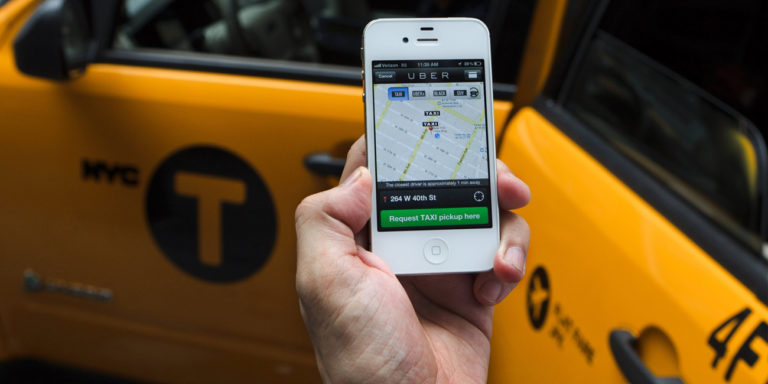Behöver du hjälp?
Vi vill gärna hjälpa dig!
Välj nedan vilket kontaktsätt som passar dig bäst.

Vi vill gärna hjälpa dig!
Välj nedan vilket kontaktsätt som passar dig bäst.

The enterprise sector is facing many challenges in both the short and the long term. Profitability, globalisation and digitalisation are just some of the challenges that can be named. Whether these challenges present a problem or an opportunity is in many cases up to each and every one of us. No matter which challenge is being discussed, keeping and retaining customer focus is absolutely imperative for enterprise. Customers control where, when and how a product is consumed and the companies that can meet their wishes in the best way are likely to have the best chance of success both today and in the future. In these contexts, a great deal is spoken about omnichannel strategies, but there can be more fundamental factors that are of greater importance – perhaps your business model for example?

“If you own more than seven things, the things own you”
– Lao Zi (600 BCE), Chinese philosopher
Not owning the end product has been shown to be a successful business idea in the last few years. The so-called sharing economy is in a strong growth phase both in Sweden and internationally. One example of this is Airbnb, that is now one of the world’s largest hotel chains but without owning a single hotel. The company was founded in 2008 and is now valued at over USD 25 billion. Another example is Über, that now operates in 470 cities without owing any taxis. Nonetheless, the company has been valued at over USD 60 billion. The company was founded as recently as 2009 and in the space of five years has achieved a higher valuation than the likes of General Motors that has been in business for over a century.
That companies like Airbnb, Uber, Google and Facebook are doing so well is due to a number of factors such as technological innovation, digitalisation and a change in consumer behaviour. These companies have taken advantage of this and are meeting consumer needs in a way that differentiates them from competitors. For example, Airbnb can offer an enormous choice (in theory, every home in the world) at a low price. Consumers can find everything on one single website and this means the booking process is time efficient, convenient and easily accessible.
Continue and expand digitalisation – naturally, physical commerce must be represented online to be able to meet consumers in digital channels. Airbnb and Über base their entire business concepts on selling their services digitally while delivery is physical. In many cases, the commercial potential is greater as sales can be made physically in stores or digitally online. Delivery can then be made via stores or home delivery.
Here, smaller retail clusters, retail areas and city centres can take numerous steps to join forces and become stronger together. For example, 6 out of 10 commercial centres lack something as fundamental as a website. With a digital presence and a sales channel, the opportunities are far greater than in the physical world alone. The latter approach is a dead end path that will be unsustainable in the long term. Värnamo, a small town in south Sweden with a population of around 19,000, is a good example. There, local traders in the town centre joined forces to create a common e-commerce platform. This is most probably a step in the right direction for bricks and mortar retailers to be able to interface with customers in all channels.
Product subscription – as with Airbnb and Über, it is perhaps not necessary that the ownership relationship always changes when a product moves from wholesaler to retailer and finally to the consumer. The world’s largest e-commerce company, Alibaba, does not own any products and doesn’t even have a storage warehouse. In a similar way to Airbnb and Über, they successfully broker products they never own. That retailers act as brokers of products between wholesalers and consumers without owning the products is naturally a possibility, but one that also brings with it numerous challenges. On the other hand, the business model behind Airbnb, Über and Alibaba is emulated in the sense that the consumer does not need to own the product, which is probably simpler for many retailers to adapt their business to. For example, a consumer could subscribe to a TV from an electronics store that then replaces the model annually. Delivery of the new TV plus installation and removal of the old set are included along with customer support. In this way, the customer remains constantly updated and avoids awkward moments when old technology needs to be replaced. The cost is also predictable and spread over the course of the subscription. Similarly, the retailer gains a more predictable and stable income over time and hopefully more loyal customers. Adding additional services is probably a good way of making this business model more profitable, such as e.g. by offering channel packages or streaming services in association with the purchase.
To an ever increasing extent, retailers will need to break free from traditional ways of doing business to be profitable over time. One important step here will be to add digital sales channels if these are missing and to evaluate adjustments to the business model where products and services are integrated and do not always need to be owned to be sold. A flexible mindset and having and keeping customers in focus will thereby be crucial for future enterprise.